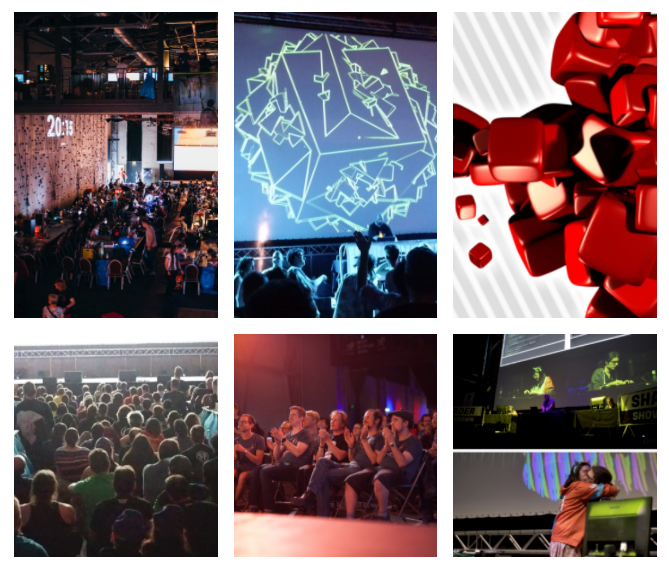Demoscene accepted as UNESCO cultural heritage in Germany
Big push for other national Demoscene applications and the acceptance for an understanding of digital cultures in general
Today on the suggestion of the national Unesco expert committee, the Standing Conference of the Ministers of Education and Cultural Affairs decided to accept the Demoscene as German intangible cultural heritage. The decision acknowledges the long and living tradition the Demoscene has in Germany, with Revision, Breakpoint, and Evoke among other demoparties shaping the landscape of major international gatherings of the demoscene for decades.
Tobias Kopka from the applicant Digitale Kultur e.V., also co-initiator of the Art of Coding Initiative, is excited: “The inscription as German cultural heritage is a big success, and writes cultural history in Germany. We will celebrate this big-time, as soon we can come together physically again! I want to thank all sceners who supported and helped to draft the application. This will also help to shed more light on the amazing history and achievements of the Demoscene, will help to preserve it, and also give a push to invigorate everybody in these harsh times of continuous lockdowns encouraging new members from all kinds of backgrounds to join the scene as creators and connoisseurs. We are happy and humbled for the support we gained within the international campaign platform Art of Coding; its purpose will continue to help other national applications by exchanging experiences and information.”

The inscription in Germany was the second listing of the Demoscene already. Just last year, Finland accepted the Demoscene as a national intangible cultural heritage. Andreas Lange from EFGAMP e.V., responsible for the international coordination of applications in the initiative, is certain that the meaning of the decision in Germany is a milestone for an intended international application: “With Germany, a second country acknowledges the Demoscene as it’s cultural heritage. As the previous decision in Finland helped convince the experts in Germany, today’s decision is a huge tailwind for the ongoing applications in other countries like France, Switzerland, and Poland. And the more countries will have listed the Demoscene, the more likely an international joint application for the Demoscene to be recognized as humanity’s cultural heritage becomes. Since digital culture is transnational at its core, an international application as the final level of the campaign is more than reasonable.”
Via Art of Coding, the Demoscene became the first digital culture officially accepted as cultural heritage. In spite digital culture became formative for our lives and culture for decades, until now, only rather traditional, analog cultures are inscribed. The successful applications in Finland and Germany show impressively that the decentral and procedural nature of every digital culture complies with the UNESCO definition of intangible heritage very well. Thereby the Demoscene is on its way to becoming a door opener for the acceptance of other digital cultures in general.
References:
Press release of the Standing Conference of the Ministers of Education and Cultural Affairs: https://www.kmk.org/presse/pressearchiv/mitteilung/20-neueintraege-ins-bundesweite-verzeichnis-des-immateriellen-kulturerbes-gebaerdensprache-demoszene.html
Demoscene entry at German UNESCO site: https://www.unesco.de/kultur-und-natur/immaterielles-kulturerbe/immaterielles-kulturerbe-deutschland/demoszene
See also:
German article by Art of Coding: Demoszene schreibt Kulturgeschichte: https://demoscene-the-art-of-coding.net/2021/03/20/demoszene-schreibt-kulturgeschichte/
Press contact: Tobias Kopka – media [at] demoscene-the-art-of-coding [dot] net



